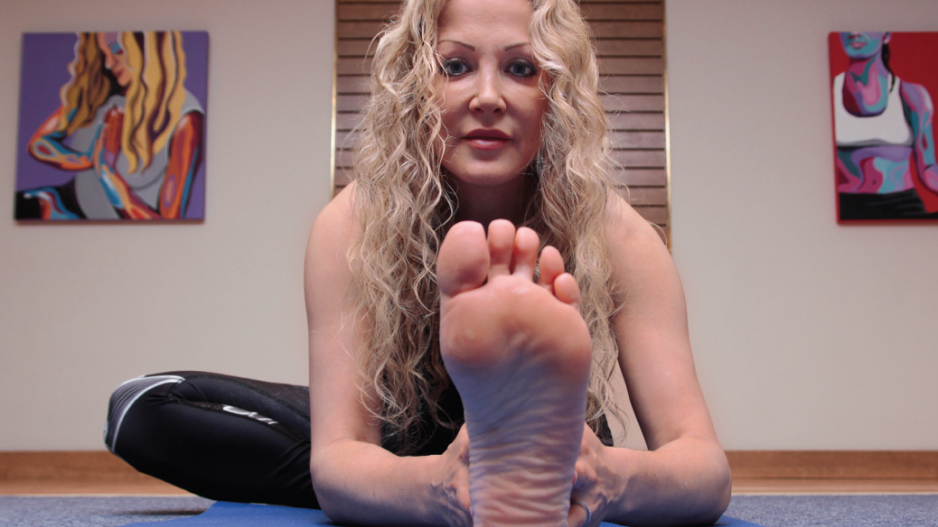Sunny Trim remembers a time when yoga studios weren’t as common as coffee shops in Vancouver. In 2003, Trim was finishing her yoga teacher training when a student, who was a lawyer, asked if she would come to teach the employees at his firm.
“I thought, ‘If he wants yoga classes at his office, I’m sure there are other people who want yoga classes at their offices.’ Really, the business just took off,” she says.
Vancouver Corporate Yoga, which Trim started solo, now has 23 teachers who travel to workplaces around the city, filling the need for flexibility and wellness among the office worker crowd. She also runs a studio in the Royal Centre downtown, which draws everyone from administrative assistants to executives in need of some hatha healing.
While classes overflowed in her first five years and the need for yoga teachers grew, supply eventually caught up with demand, and Vancouver’s yoga landscape changed.
“Within the last five years, there’s just a saturation of teachers,” Trim says.
Now, in addition to the growth of what Trim calls “big-box” yoga studios, more teachers are opening their own studios hoping to turn their passion for physical and spiritual bliss into a full-time career. It has made the business of running a yoga studio even more competitive.
City of Vancouver records show 65 business licences with the word “yoga” in their trade name in 2015, compared with 21 in 2003. Classes also proliferate at gyms, community fitness centres, parks and pop-up spaces. Yoga teachers are not required to be licensed so there is no official count. Trim says that her biggest challenge is retaining students in the face of all of the variety, as well as initiatives like Groupon that encourage yogis to hop around.
While the practice of yoga may be about peace and relaxation, owning a yoga studio in Vancouver is a tough and sometimes frustrating business. Yoga studio owners like Trim say that they can’t always just go with the flow. Sometimes they must create hard and fast boundaries for the sake of the business.
“I was doing this thing that people in the yoga community sometimes do, which is you just say ‘Yes’ to every opportunity,” says Julie Peters, describing her early years running the Ocean and Crow studio in the Commercial Drive area.
After buying part of the studio in 2010 (her mother, Jane Peters, bought in two years later), Peters quickly learned that running a small business meant she had to start saying “No” if she wanted it to be financially viable. This meant turning away late students in order to preserve the “safe space” of the class, letting go of teachers or dropping classes that weren’t the right fit, and raising prices.
“It can be challenging, in part because there is that stereotype that … people do this for a labour of love, and because there is so much yoga that is available for cheap or for free, people don’t necessarily have a sense that it’s a high-value product,” Peters says.
Ocean and Crow aims to set itself apart by offering diverse classes such as “slow yoga” and yoga for anxiety and depression. It’s both a business strategy and a passion for Peters. She is gratified when students say they feel comfortable at her studio in a way they don’t elsewhere, and proud that her business is not just breaking even, but growing.
“I think it’s a huge success to be financially sustainable at all in a yoga studio context in Vancouver,” Peters says.
Monique Harris, owner of Moksha Yoga East Vancouver, a branch of the hot-yoga franchise, is also trying to differentiate her studio by building a community not just through yoga, but also through events and workshops that raise money for local charities. In May, for example, the studio held a “capitalism and climate change” talk, will all proceeds going to the David Suzuki Foundation.
The yoga business is rewarding for Harris, but also hard work. When she tells people she owns a yoga studio, the common misconception is that she spends her days teaching yoga and drinking tea. The tea part is true, but Harris spends most of her day managing the business and very little of it in downward dog.
“A lot of what I do is things like getting stuff ready for my bookkeeper, setting up marketing online, doing social media and balancing all my teachers,” Harris says.
Training through the Moksha franchise has helped Harris to keep her business plan on track and to hit her financial goals.
At Vancouver Corporate Yoga, Trim says she retains a loyal clientele by focusing on the basics they’re looking for: traditional hatha yoga at competitive rates, taught by professional teachers. The teachers also need to recognize it’s a business, at least if they want it to be a long-term career.
“You can’t walk into the office and be too hippy-dippy,” Trim says with a laugh. “You’ve got to get the flowers out of your hair.”




